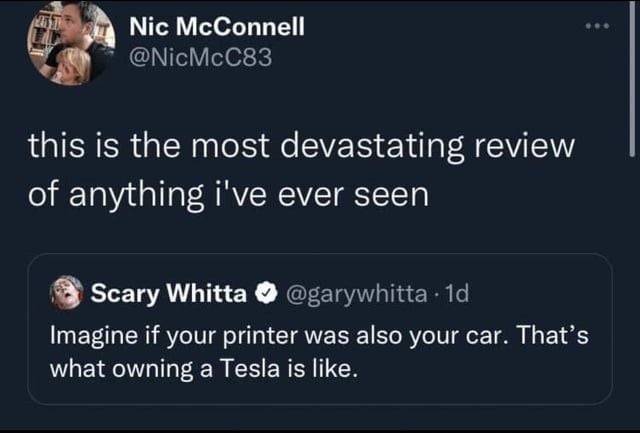this post was submitted on 18 Apr 2024
1602 points (98.3% liked)
People Twitter
6891 readers
867 users here now
People tweeting stuff. We allow tweets from anyone.
RULES:
- Mark NSFW content.
- No doxxing people.
- Must be a pic of the tweet or similar. No direct links to the tweet.
- No bullying or international politcs
- Be excellent to each other.
- Provide an archived link to the tweet (or similar) being shown if it's a major figure or a politician.
founded 2 years ago
MODERATORS
you are viewing a single comment's thread
view the rest of the comments
view the rest of the comments

You can't bring up BSD and not finish the pedantic history of macOS. Leave it at "macOS is a UNIX" or get into the weeds.
macOS userland (i.e. terminal commands) is mostly FreeBSD with some stuff from other BSDs. However, the kernel is a separate project entirely and comes from NEXT (Steve Jobs' project when he briefly left Apple), which was based on the Mach microkernel. Both FreeBSD and Linux use monolithic kernels, and there's pretty much no shared heritage there with macOS. Also, macOS uses its own init (launchd), filesystems (HFS+), etc, and doesn't support the standard stuff in BSD (e.g. FreeBSD init, UFS, ZFS) or the standard stuff in Linux (e.g. sysvinit, systemd, ext4, etc).
The overlap between macOS and Linux is essentially zero other than some shared UNIX idioms and a few packages like bash. The overlap between macOS and FreeBSD is the userland, which most people don't interact with unless they're terminal nerds like me. The overlap is just the macOS borrowed a lot of open source stuff, it's not really based on FreeBSD at all.